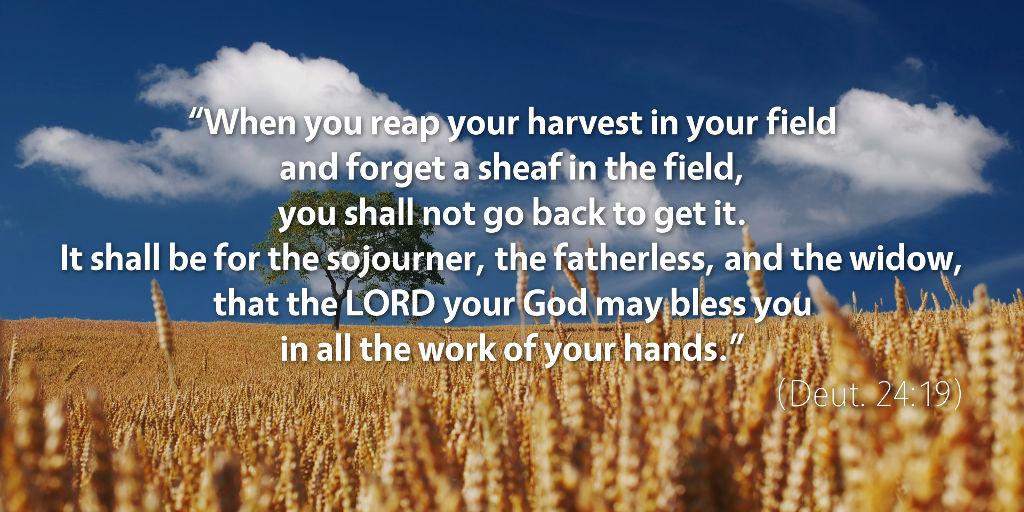Bible Readings for June 19th
Deuteronomy 24 | Psalms 114–115 | Isaiah 51 | Revelation 21
Deuteronomy 24 contains several laws that the section headings in the ESV classify as “miscellaneous.” Quite a few of these laws (though not all in this section) regulate how Israel should treat the poor in their midst. We would classify these laws as civil laws (see the meditation on Deuteronomy 22), governing the day-to-day living of Israel. So, while Christians aren’t bound to the letter of these laws, we nevertheless see in them a picture of what kind of “general equity” we should seek in our own societies. Today, we’ll look at four of these laws.
In Deuteronomy 24:6, Moses forbids taking a mill or an upper millstone as collateral for a loan. The reason was simple: without the mill or the upper millstone, a person would have no way of earning income to pay his loan back. This is a prohibition against all kinds of predatory loans that the poor have no way of repaying. In Israel, loans were never given as a way for the lender to build up power but only to help fellow Israelites who needed it.
The laws in Deuteronomy 24:10–13 mandate that creditors must respect the dignity of those to whom they have loaned. They may not barge into the houses of people who owe them money, and if a person is so poor that he only had his cloak to pledge, the creditor may not keep the cloak overnight, forcing the poor person to sleep without a covering. Again, lending arrangements that would humiliate the poor were forbidden in Israel.
Deuteronomy 24:14–15 requires that wages must be given to hired servants on the same day as the work is performed, before the sun sets. This is a good example of where keeping the letter of the law in our modern context probably isn’t usually necessary. On the other hand, we learn here that it is an abomination in the sight of Yahweh to withhold payment from the poorest day workers in our midst who live from their day-to-day wages. Accordingly, in James 5:1–6, we read that all who defraud the poor of their wages are fattening themselves for the day of slaughter when Jesus returns to judge the wicked.
Finally, in Deuteronomy 24:19–22, Moses explains one of the major ways that Israel would feed the poor in their midst. Farmers would avoid harvesting every last sheaf, olive, or grape but would leave leftovers for the poor to come and glean for themselves, which is what Ruth does to support her mother-in-law, Naomi, when she meets Boaz (Ruth 2). This didn’t create a handout system because poor people had to harvest the leftover crops themselves, but it did mandate that the rich share their wealth with the poor.
Do the principles behind these laws challenge the way you treat the poor in your midst?
Podcast: Play in new window | Download (4.5MB) | Embed
Subscribe: Apple Podcasts | RSS | More

Scripture quotations are from The Holy Bible, English Standard Version copyright © 2001 by Crossway Bibles, a division of Good News Publishers. Used by permission. All rights reserved.


